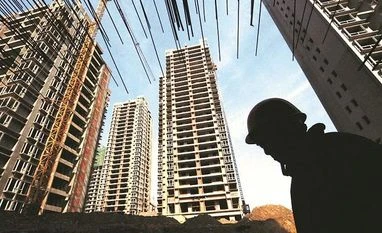Maintaining high growth for the fourth month in a row, industrial production grew at 7.1% in February, mainly driven by robust performance of the manufacturing sector coupled with higher offtake of capital goods and consumer durables.
Retail inflation slowed to five-month low of 4.28% in March, the third consecutive month of decline, mainly on account of easing food prices including vegetables, government data showed today.
Factory output measured in terms of the Index of Industrial Production (IIP) had grown by 1.2% in February 2017, as per data released by the Central Statistics Office (CSO) today.
The IIP recorded a growth of 8.54% in November, 7.1% in December and 7.4% in January, as per the revised data.
During April-February, IIP growth has slowed to 4.3% from 4.7% in the same period last fiscal.
The inflation based on Consumer Price Index (CPI), a key data factored in by the RBI to arrive at interest rate, was 4.44% in February.
However, the March 2018 inflation is higher than 3.89% recorded in the same month last year.
As per data released by the Central Statistics Office (CSO), inflation in the vegetables segment cooled to 11.7% in March from 17.57% in the previous month.
Manufacturing sector, which constitutes over 77% of the index, grew at 8.7% in February as compared to almost flat growth of 0.7% in the same month a year ago.
Similarly, capital goods output rose by a robust 20% in the month under review as against a contraction of 2.4% earlier.
The rate of price rise in the protein rich items like eggs, milk and other products too moderated in March as against the previous month.
However, inflation in fruits basket was higher.
Consumer durables too grew at 7.9% as against a contraction of 4.6% in February 2017. Electricity generation also grew by 4.5% compared to 1.2%. However, mining output declined by 0.3% against a growth 4.6% earlier.
As per use-based classification, the growth rates in February 2018 over February 2017 are 3.7% in primary goods, 3.3% in intermediate goods and 12.6% in infrastructure/construction goods. The consumer non-durables sector recorded a growth of 7.4%.
In terms of industries, 15 out of the 23 industry groups in the manufacturing sector have shown positive growth during February 2018.
Overall, inflation in the food basket was 2.81%, lower than 3.26% in February.
The CSO data further revealed that inflation in the fuel and light segment also came in lower at 5.73% month-on-month basis.
"The outlook on inflation continues to remain data-dependent, but risks remain largely to the upside, especially from expectations of a rise in crude oil prices due to international output cuts, further hardening of domestic consumption, and continued impact of HRA (house rent allowance) increase.
"We expect that inflation expectations in the period ahead will possibly be shaped by oil price movement, impact of minimum support prices inclusion, fiscal slippage as GST collections remain low, and monsoon forecasts. A greater challenge would be for the RBI to set policy sentiments correctly in the coming period as higher yields, inflationary pressures and election cycle in India and US both are likely to lead to market volatility. We expect inflation prints to hover around the 5-percent mark in FY18-19," said Anis Chakravarty, lead economist, Deloitte.
"We expect RBI to revise its FY19 inflation rate projection upwards. We expect CPI inflation to overshoot RBI's forecast to average 4.7-4.8% in FY19 compared with 4.5% in FY18. While today's CPI print of 4.28% came in well within RBI's projected rate of 4.5%, the risk to inflation going forward lies on the upside. As such, we expect RBI to respond with a rate hike during the third quarter of FY19. A generalized increase in food prices amid pick-up in rural economic activity could add to upside risks to core inflation going forward," said Garima Kapoor, economist, Elara Capital.
Unlock 30+ premium stories daily hand-picked by our editors, across devices on browser and app.
Pick your 5 favourite companies, get a daily email with all news updates on them.
Full access to our intuitive epaper - clip, save, share articles from any device; newspaper archives from 2006.
Preferential invites to Business Standard events.
Curated newsletters on markets, personal finance, policy & politics, start-ups, technology, and more.
)